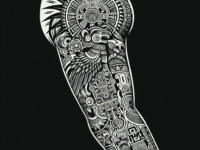Aztec sleeve tattoos are an extraordinary way to express one’s identity and cultural appreciation. They seamlessly blend intricate artistry with deep symbolism, often reflecting a connection to ancient traditions and profound narratives. Each design can encapsulate a multitude of meanings, making it essential to explore various motifs and their significances.
Inspirational Aesthetic
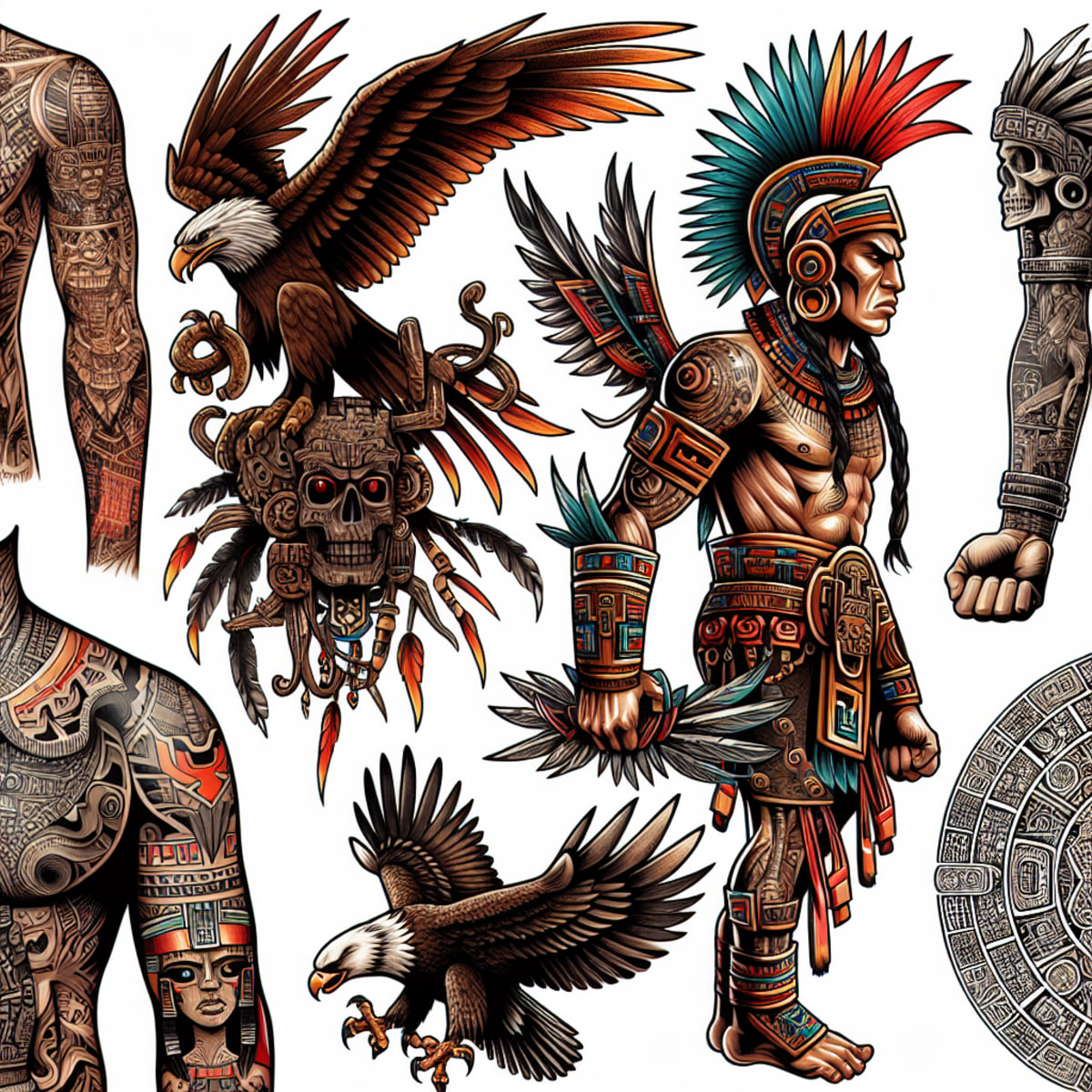
“Tattooing is a story that’s told through art – every Aztec symbol harbors a unique tale.”
The vibrant colors and detailed glyphs of Aztec sleeve tattoos can serve as a striking centerpiece. Incorporating elements like the sun, which represents life and power, can instantly transform an ordinary tattoo into a stunning work of art.
Tribal Embellishments
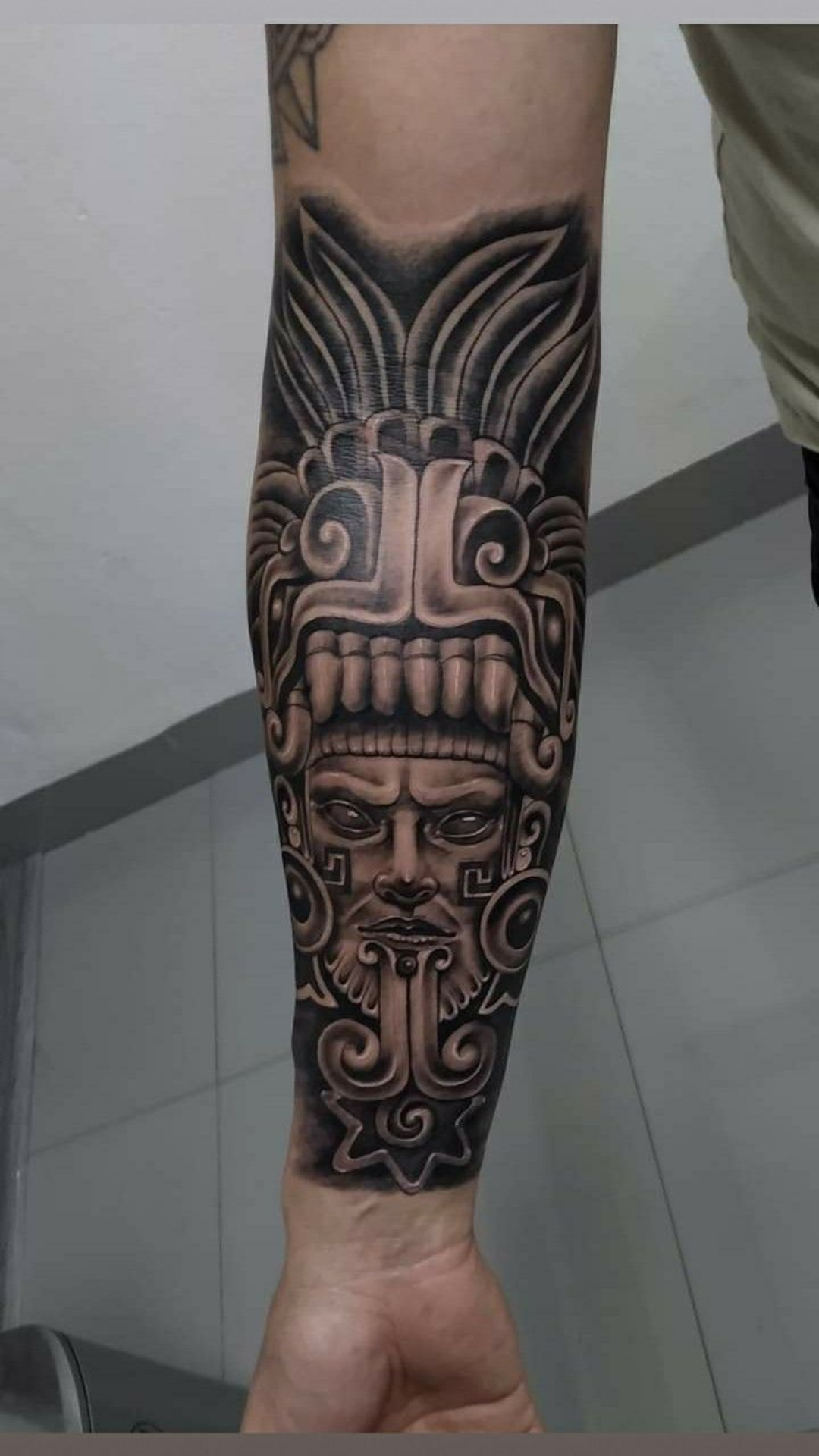
“In every inked line, lies the essence of our ancestors’ dreams and aspirations.”
The fundamental designs found in Aztec tribal tattoos often denote strength and resilience. The patterns can represent a warrior’s spirit or convey a connection to deities, inviting powerful energies into the bearer’s life.
Connection to Nature
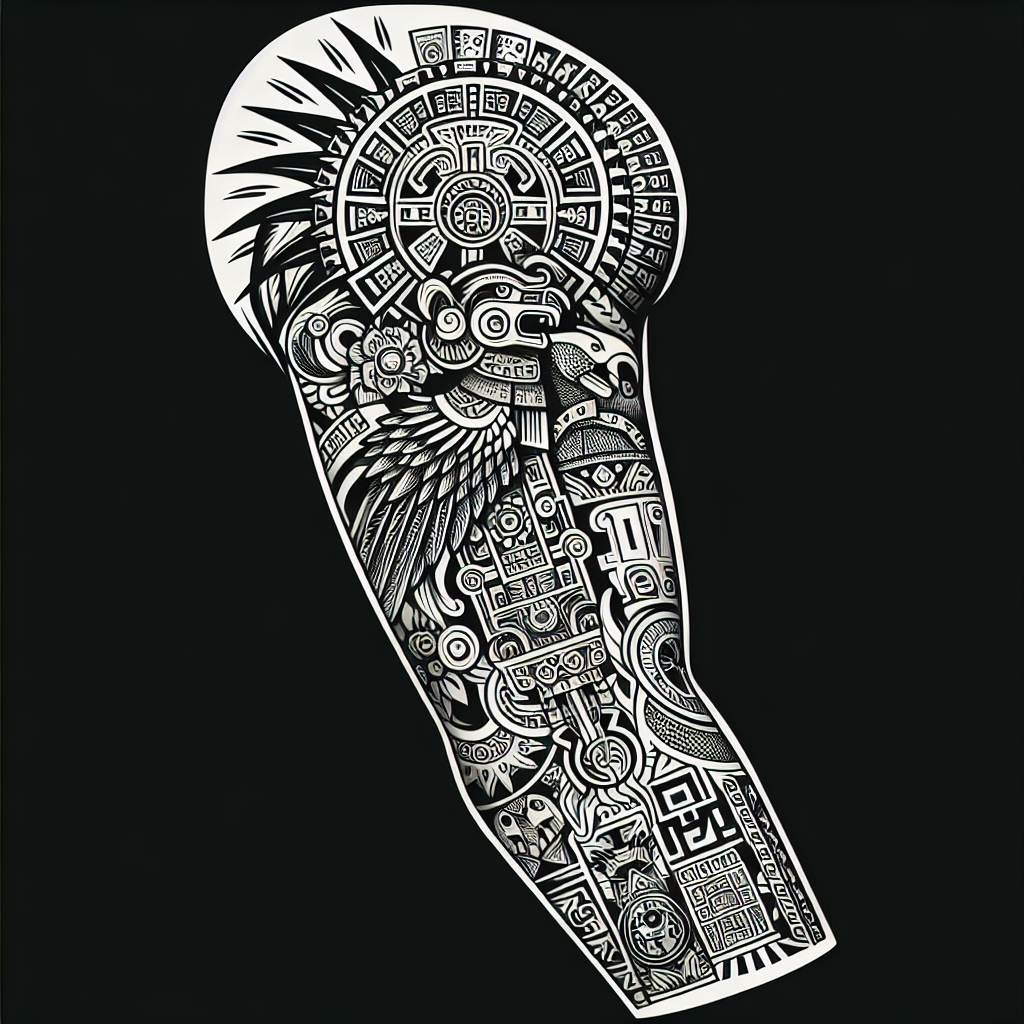
“Nature and art are eternal companions; the Aztec heritage celebrates this bond.”
Images of natural elements like the jaguar or eagle embody not just grace but also ferocity. These creatures are revered in Aztec culture and their representation in tattoos serves as a tribute to nature’s majestic and untamed spirit.
The Spiritual Journey
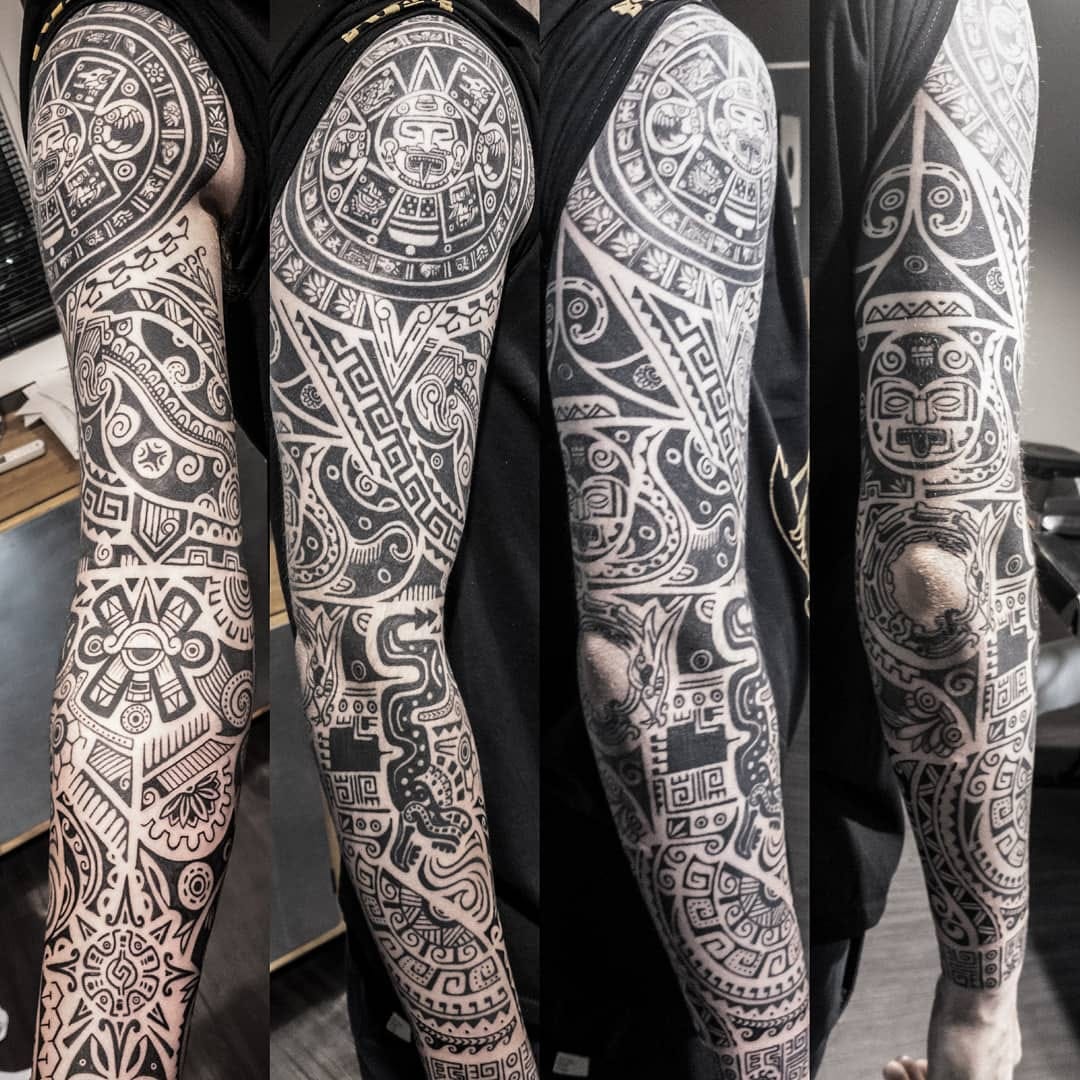
“Every tattoo is a pilgrimage; each design symbolizes paths both taken and yet to tread.”
Many choose Aztec sleeve tattoos as a form of spiritual expression. They may signify personal growth or the journey through life’s myriad challenges, with each symbol a guiding star steering one towards enlightenment.
Historic Resonance
![100+ Best Aztec Tattoo Designs - [Ideas & Meanings in 2019]](https://pintattoos.com/wp-content/uploads/2025/07/Aztec-Tattoo_-44.jpg)
“Ink holds history within its pigments; the Aztec legacy pulses through each line.”
Ultimately, Aztec sleeve tattoos are more than mere decorations. They serve as reminders of the rich tapestry of history and tradition that shape our identity today. Choosing such a tattoo is a profound nod to the remarkable narratives of the past.

